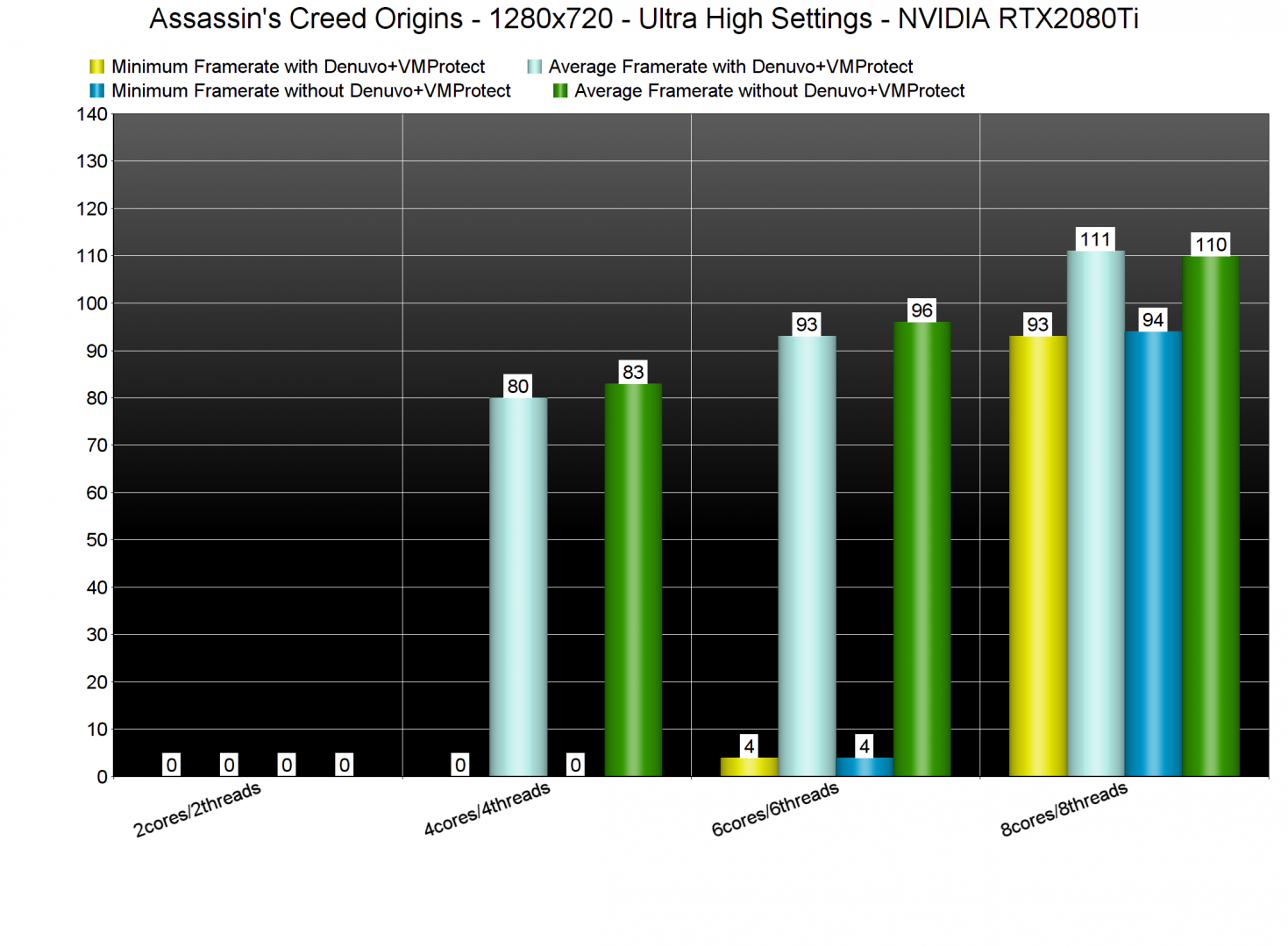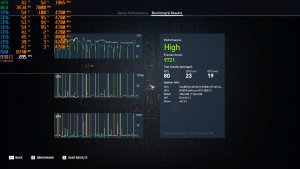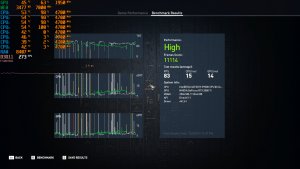As we’ve already reported, a “games cracking” group was able to completely remove Denuvo and VMProtect from Assassin’s Creed: Origins. Therefore, we’ve decided to test the UPLAY and the pirated versions in order to see whether these DRMs have any negative effect on the game’s performance.
For these tests, we used an Intel i9 9900K with 16GB of DDR4 at 3600Mhz. Naturally, we’ve paired this machine with an NVIDIA RTX 2080Ti. We also used Windows 10 64-bit and the GeForce 441.41 driver.
Since Assassin’s Creed: Origins comes with a built-in benchmark, we’ve decided to use that for our tests. Furthermore, and in order to put more stress on the CPU, we’ve lowered our resolution to 1280×720. We kept using the game’s Ultra High settings as some of them affected both the GPU and the CPU.
As we reported back in 2017, Assassin’s Creed: Origins suffers from major stuttering issues on quad-core CPUs (especially if your CPU does not support Hyper Threading). And as we discovered today, Ubisoft has not reduced them. Now what’s really interesting here is that the pirated version had less stutters. Do note that both of these versions had LONG stuttering issues (we’re talking about stutters that last 3-4 seconds) and made the game unplayable. Still, the pirated version had significantly less stutters; there were some but they were not as frequent as those found in the UPLAY version. Moreover, and as with most games that do not use Denuvo, the pirated version of Assassin’s Creed: Origins loads faster.
Framerate wise, we did not experience any differences between these two versions. What this means is that Denuvo and VMProtect do not bring a framerate hit in Assassin’s Creed Origins.
This comparison was quite interesting to be honest. While the minimum and average framerates are similar, the pirated version actually felt better. This was mainly due to the less stutters we’ve experienced, alongside the faster loading times. We were able to replicate these awful stuttering issues multiple times on the UPLAY version, so we can safely say that the pirated version runs better on specific systems. It’s also worth noting that these stuttering issues were completely eliminated on our simulated six-core and our eight-core CPUs the moment we enabled Hyper Threading.
Below you can find the frametime graphs for our simulated quad-core benchmarks. On the left we have the Denuvo+VMProtect version and on the right the pirated version. As you can clearly see, there are less stutters in the pirated version.
In conclusion, even if Ubisoft removes Denuvo and VMProtect from AC:O, you won’t receive any framerate boost. What you will get, however, is faster loading times and less stuttering. Those that will greatly benefit from such a thing are owners of weaker PC systems. On the other hand, owners of high-end CPUs will not see any performance difference at all.

John is the founder and Editor in Chief at DSOGaming. He is a PC gaming fan and highly supports the modding and indie communities. Before creating DSOGaming, John worked on numerous gaming websites. While he is a die-hard PC gamer, his gaming roots can be found on consoles. John loved – and still does – the 16-bit consoles, and considers SNES to be one of the best consoles. Still, the PC platform won him over consoles. That was mainly due to 3DFX and its iconic dedicated 3D accelerator graphics card, Voodoo 2. John has also written a higher degree thesis on the “The Evolution of PC graphics cards.”
Contact: Email




